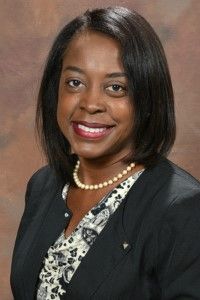The Role of a Nurse Coordinator in the CheckMate-73L Trial
Sandra Duncan, RN, BSN, discusses her transition to clinical research, and what her responsibilities are like supporting the ongoing CheckMate-73L trial.
The ongoing phase 3 CheckMate-73L trial (NCT04026412) will appraise the safety and efficacy of nivolumab plus chemoradiation followed by nivolumab and ipilimumab (Yervoy) in patients with stage III non–small cell lung cancer (NSCLC) that is unable or not planned to be removed by surgery.
Sandra Duncan, RN, BSN

Oncology Nursing News® recently met with Sandra Duncan, RN, BSN, to discuss the potential ramifications of this trial for both nursing professionals and patients alike. Duncan is a clinical oncology research nurse who supports patients with cancer being screened or enrolled in clinical trials at the Georgia Cancer Center at Augusta University.
Although Duncan has worked as a nurse for 21 years at Augusta University, it wasn’t until recently that she made the transition to participating in clinical trial research. In this interview she also discussed how empowering and rewarding that career switch has been, as well as what her specific responsibilities have been in supporting the CheckMate-73L trial.
“I love it,” she began, at the beginning of the discussion. “I love what I'm doing. I feel like I am a connector for our potential subjects, working with our principal investigators and some other multi-specialty areas here at Augusta University with this particular study and, of course, the sponsor as well”.
Oncology Nursing News®: What has been your experience with the Checkmate 73L trial?
We had our site initiation visit in May of this year. We have yet to enroll the first patient, but our goal accrual here will be 4 patients over the next life of the clinical trial. I know we will meet that goal.
We have clinics on every Tuesday & Thursday. We also screen the patients that our other multidisciplinary physicians have, such as CT surgery, our radiation oncologist, and other medical oncologists. We actually screen their listing of patients. Since we have access to electronic health records (EHR), and since we can't meet all the patients, we screen based upon the eligibility and prescreen to see if they are potential patients at that time. … So, what we do is prescreen those clinics, and then we will, at that time, come up with any potential subjects before we actually have clinical or bring them in for clinic. So, we have an idea if that patient will meet eligibility requirements before being even approached at all.
We had 1 potential patient, unfortunately. I say unfortunately because when we got the referral, the patient already had received cardiothoracic surgery and was opted unresectable.
We use that as an educational piece to other multidisciplinaries and our tumor board to say, “This is the kind of patient that would have benefited from this type of clinical trial.” So, as we move forward, it's going to be continuing education, particularly because we have weekly tumor board meetings, where we talk about potential patients and re-education.
What are some of the unmet needs in NSCLC treatment right now?
I think what this particular clinical trial is simply going to do is give our patients more options. [If a patient says,] “I know I don't want surgery, then what else is out there for me?” That’s when we start discussing immunotherapy. I think that's one of the things that's needed for patients who do not opt to have surgery, many of them don't want to be in the hospital setting. This simply gives patients more options to have immunotherapy while doing radiation therapy than the 1-year maintenance treatment. That’s what is not available right now.
What are some of the challenges as that role of connecting the PI and all those moving components for a trial like this?
It is a communication challenge to make sure everybody receives the same message. So, I think for the efficiency and effectiveness, the challenge is ensuring that everybody hears the same message at the same time–it is important to relay information to all parties at the same time. And that's not always possible. So therefore, as a study coordinator, you are constantly either emailing or calling and trying to make sure everybody knows who is on board: Did you check your emails? Did you do this? Where are we?
You are constantly trying to make sure all parties are on board. Because what you don't want is to have patients wait and delay their care. Being proactive and making sure that all parties are up-to-date is imperative, including the patients in the middle. We have to make sure in the middle of the circle that they have what they need because sometimes we have challenging cases. For example, one [case] we had recently, not for this clinical trial, a patient was in the waiting room for over an hour. [It is] just frustrating. So, our goal is to be as efficient as possible, and, therefore, improve the patient’s overall survival.
Do you think the results of Checkmate 73L trial could change how we approach this disease, particularly from a supportive care standpoint?
I do believe that. I think once the numbers or the data come back, it will reflect that this may become the overall standard of care for patients.
And what, in your opinion, will be the grand takeaway for nurses who are following this trial or are interested in this research?
For nurses that are [lung specialists], I think they they can become mouthpieces for family members or for the community, just to say, “Did you know this study exists?” - especially for the [patients] who do not opt to have surgery so other nurses can become spokesperson, if you will, indirectly, just helping to educate others about this clinical trial.



